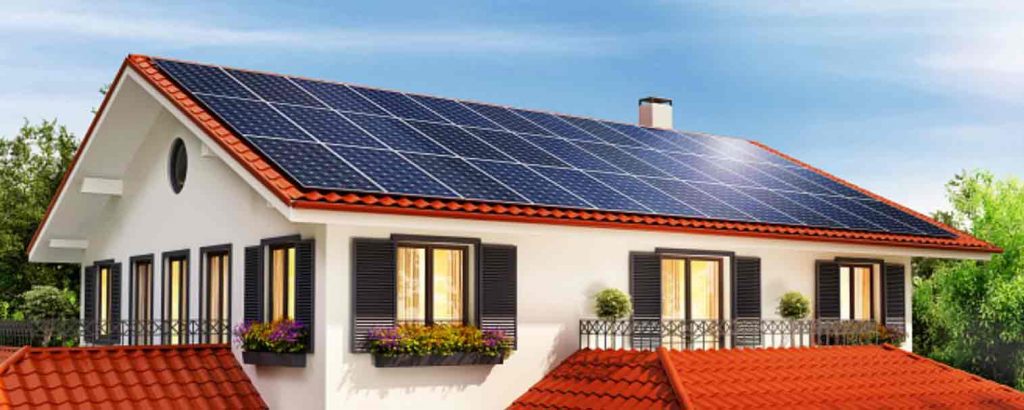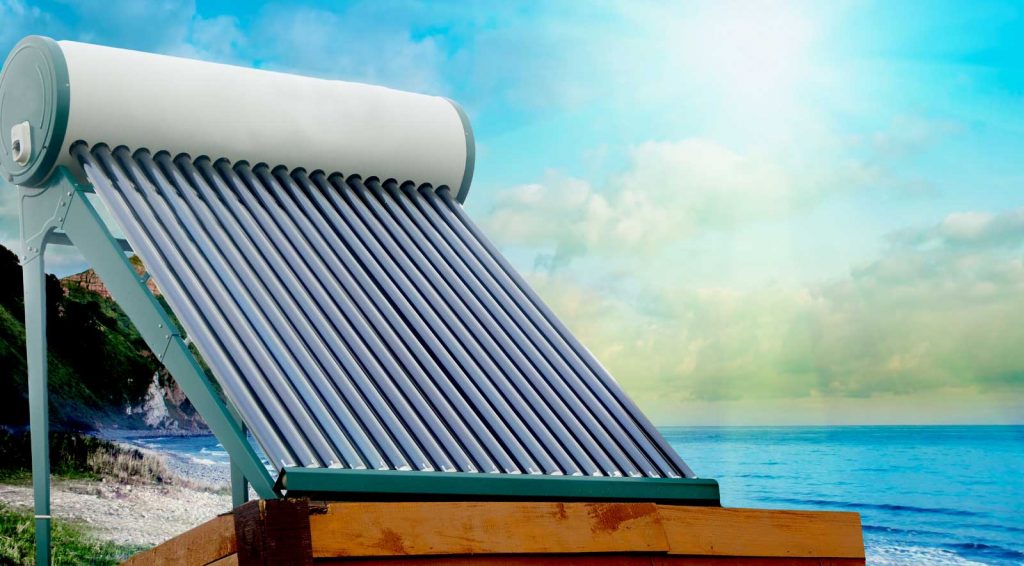Solar power has many benefits for your home, but it can also cost a lot of money. You need to know what kind of potential savings you will get out of using it before you make any decisions. After that, there are other things to consider such as where you live and what kind of sunlight receives in the area during certain times throughout the year.
But Solar Energy comes to the Earth in two major forms; Light and Heat. Plants make their food using the light from the sun; this is what is called photosynthesis. Animals use light to see and heat to keep warm.
Humans have developed systems to use sunlight and heat with two types of technologies; Solar Photovoltaic and Thermal systems. The end product is the primary difference between these two technologies. Photovoltaic creates electricity while thermal solar power produces heat.
What is Photovoltaic Solar?
Photovoltaics refers to a number of different solar-based technologies that can make electricity from sunlight, or light.
PV is the abbreviation for photovoltaics and it also happens to be an acronym (it stands for “Photo Voltaic”) and as such, should not be capitalized. Accordingly, “photovoltaic cells” then become PV cells.” Technologies that produce electricity from sunlight” now become “technologies that produce electricity from light.” This technology was developed in the late 1800s.
Application of PV Solar
PV solar is mainly used off-grid to generate electricity in locations where there is no source of power from the grid. This can be cabins, off-grid homes, or even while camping with RVs or Boats. You only need a solar panel and sunlight to charge your battery bank.

Advantages of PV Solar
- Last for a long time i.e Solar Panels can last up to 25 years.
- Weather Resistance and can work in Winter, Rain, and Cloudy conditions
- Government Incentives to Install Solar Panels
- Excess Power can be sold to Local Utility providers
Considerations
- Large systems can be expensive and complex
- Installing a system requires knowledge of electricity
- Complaints about Roof’s Appearance
- It requires a large area (roof or open space)
- Obstacles can affect the system’s power output
- Orientation of the system may reduce efficiency
- Local regulation (City Hall) license and By-laws
- The hot environment may reduce the efficiency of the Solar Panels by some degree
What is Solar Thermal?
All forms of solar thermal energy use the sun’s heat to generate power. The most productive hours are usually midday when the Sun is at its highest point in the sky. Most systems use large arrays of mirrors called heliostats focusing light on a central boiler or tower that contains water or oil that then produces steam to drive turbines.

But, concentrated solar power (CSP) systems create high temperatures by using molten salts, which allow the to reach higher temperatures than traditional mirrored solar thermal collectors. This raises their efficiency above other plant types and allows them to produce electricity even when direct sunlight is lacking (early mornings or late afternoons)
Application of Solar Thermal
Heating up the Hot Water Tank, Pool heating, Industrial processing factories, Hot water for remote areas (Cabins)
Advantages
- Less expensive compared to Photovoltaic systems
- Still reasonably functional in cold weather with a clear sky
- Does not require a huge space or a rooftop
- Economically beneficial as it can be used by multiple persons in a household
- A hot climate increases the efficiency of the system
Considerations
- Heat energy cannot be reserved for a long period of time
- This form of energy cannot be sold to a grid system
- Requires mechanical and plumbing skills
- Need to face direct sunlight for optimum performance
- Underground plumbing and insulation
- Heavier than PV (Roof load consideration) Local regulation (City Hall) license and By-laws
Should I Install Thermal or Photovoltaic Solar?
The right choice for you will depend on your location and your electricity demands. Solar panels work best in places where the intensity of sunlight is high, such as close to the equator. They also need well-drained land and structures that are good at directing sunlight into them, such as typically flat rooftops or south-facing windows.
In those areas, solar panel systems can be up to 70 percent cheaper than conventional grid power. In places with less intense sun exposure, photovoltaic solar panels may not produce enough energy to justify their cost over several years time frame because they require more expensive batteries for cloudy days or for long winter nights when there is no light from the sky.
If you’re in an area that gets a lot of sunlight, it makes sense to use photovoltaic panels. If you don’t get very much sun or only want power at night, thermal panels are what you need. It’s all about efficiency and making solar pay for itself. So forget aesthetics and head for efficiency instead!
Solar thermal panels are for heating your home and cooking. So if your greatest need or power consumption is getting hot water, thermal wins. For those looking to save on their electricity bills, thermal collectors are a clear winner.
They provide an efficient way of generating energy due in part thanks to the fact that they can capture up 50% more than photovoltaic systems which don’t convert sunlight into usable power with nearly as much efficiency or effectiveness (around 20%).
There is no way to know which solar PV and thermal energy is right for your home. It all depends on what you need the panels for! Many homes use both forms, one as a primary source of power while another supplements it; there’s nothing wrong with going into this blindly so don’t fret over making an informed decision before getting started.
A contractor who specializes in solar energy area will help determine how much power your home needs as well as if now is the right time for a change or not – with environmental concerns going up every day due to the lack of fossil fuels around us all we should do whatever possible so that our planet doesn’t suffer from pollution yet still have reliable electricity at affordable prices
You are here
This is a great article. All the information on solar PV vs. solar thermal was a little confusing and even though they seem to have very different advantages, you did a great job and explaining. Hybrid solar panels sounds like a great option, I’ll have to look more into it. Thanks for sharing!